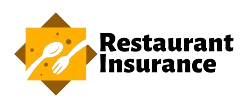Commercial restaurant insurance is a specialized coverage designed to protect restaurants from various risks, ensuring business continuity. This insurance typically includes several key components, such as general liability, property insurance, and workers’ compensation. General liability insurance safeguards against claims related to bodily injury or property damage, while property insurance covers damages to the restaurant’s physical assets, like equipment and furnishings.
Workers’ compensation insurance is vital for protecting employees in case of work-related injuries. Additionally, many restaurants opt for liquor liability insurance to mitigate risks associated with serving alcohol. By understanding and investing in commercial restaurant insurance, owners can protect their investments, comply with legal requirements, and focus on providing great food and service to their customers without worrying about unforeseen liabilities.
Your restaurant needs commercial insurance to safeguard against potential risks that can threaten its operations and financial stability. Accidents, such as slips and falls, can lead to costly liability claims, and property damage from fire or theft can significantly impact your bottom line. Commercial insurance not only protects your assets but also helps meet legal requirements, ensuring you comply with local regulations.
Additionally, workers’ compensation coverage is essential for supporting employees injured on the job, fostering a safe work environment. By investing in commercial insurance, you can mitigate risks, enhance your restaurant’s credibility, and maintain peace of mind. Ultimately, this coverage allows you to focus on delivering exceptional food and service, knowing your business is protected against unforeseen challenges.
Fire insurance is crucial for restaurants in California due to the state’s susceptibility to wildfires and other fire-related risks. California’s arid climate and frequent wildfire occurrences pose significant threats to businesses, including restaurants. Having comprehensive fire insurance safeguards restaurants from potential property damage, business interruption, and financial losses arising from fire incidents.
Moreover, California’s regulatory environment often requires businesses to have adequate insurance coverage. By investing in fire insurance, restaurants can ensure they are financially protected, enabling them to recover swiftly and resume operations in the aftermath of a fire. It’s a strategic and necessary measure for restaurants in California to mitigate the inherent risks associated with the state’s unique environmental challenges.
Bundling commercial insurance policies is a smart strategy for restaurant owners looking to save on premiums while ensuring comprehensive coverage. By purchasing multiple types of insurance—such as general liability, property, and workers’ compensation—from the same provider, you can often secure significant discounts. Insurers typically reward clients who consolidate their policies, reducing administrative costs and fostering long-term relationships.
Bundling not only simplifies your insurance management but also ensures that your coverages are aligned, minimizing potential gaps. It’s crucial to review the terms and conditions of each policy to ensure you’re adequately protected. Additionally, consulting with an insurance broker can help identify the best bundling options tailored to your restaurant’s specific needs. Ultimately, bundling can enhance your coverage while optimizing costs, providing peace of mind for your business.
Here are five effective tips for reducing your commercial restaurant insurance costs:
Lessons learned from restaurant insurance claims can provide valuable insights for restaurant owners seeking to enhance their risk management strategies. One key takeaway is the importance of thorough documentation. Keeping accurate records of incidents, maintenance, and employee training can significantly bolster your case during a claim. Additionally, investing in safety measures, such as employee training and regular inspections, can help prevent accidents and minimize liability claims.
Another lesson is the significance of understanding your policy limits and exclusions; many claims are denied due to insufficient coverage or misunderstanding of the terms. Finally, maintaining open communication with your insurance provider can facilitate smoother claims processes. By learning from past experiences, restaurant owners can make informed decisions that strengthen their businesses, reduce risks, and ensure long-term success in the competitive food service industry.
Restaurant liability insurance is essential for several reasons. Firstly, it protects your business from potential financial losses from accidents, injuries, or property damage on your premises. Without insurance, you could be liable for expensive medical bills, legal fees, and compensation payments, which could cripple your business financially.
Secondly, liability insurance helps safeguard your restaurant’s reputation. In the event of a customer injury or foodborne illness outbreak, having insurance coverage can demonstrate your commitment to addressing the situation and compensating those affected, potentially mitigating negative publicity and preserving customer trust.
The bottom line of having restaurant liability insurance is protection – both for your business and your peace of mind. While it may represent an additional expense, inadequate coverage can far outweigh the premiums. Liability insurance shields your restaurant from potentially devastating financial losses due to lawsuits, property damage, or accidents on your premises.
Transferring these risks to an insurance provider safeguards your business’s assets and reputation, ensuring its long-term viability. Ultimately, restaurant liability insurance is not just a financial investment but a critical strategic decision that can help secure the success and sustainability of your restaurant in an industry fraught with potential risks.

